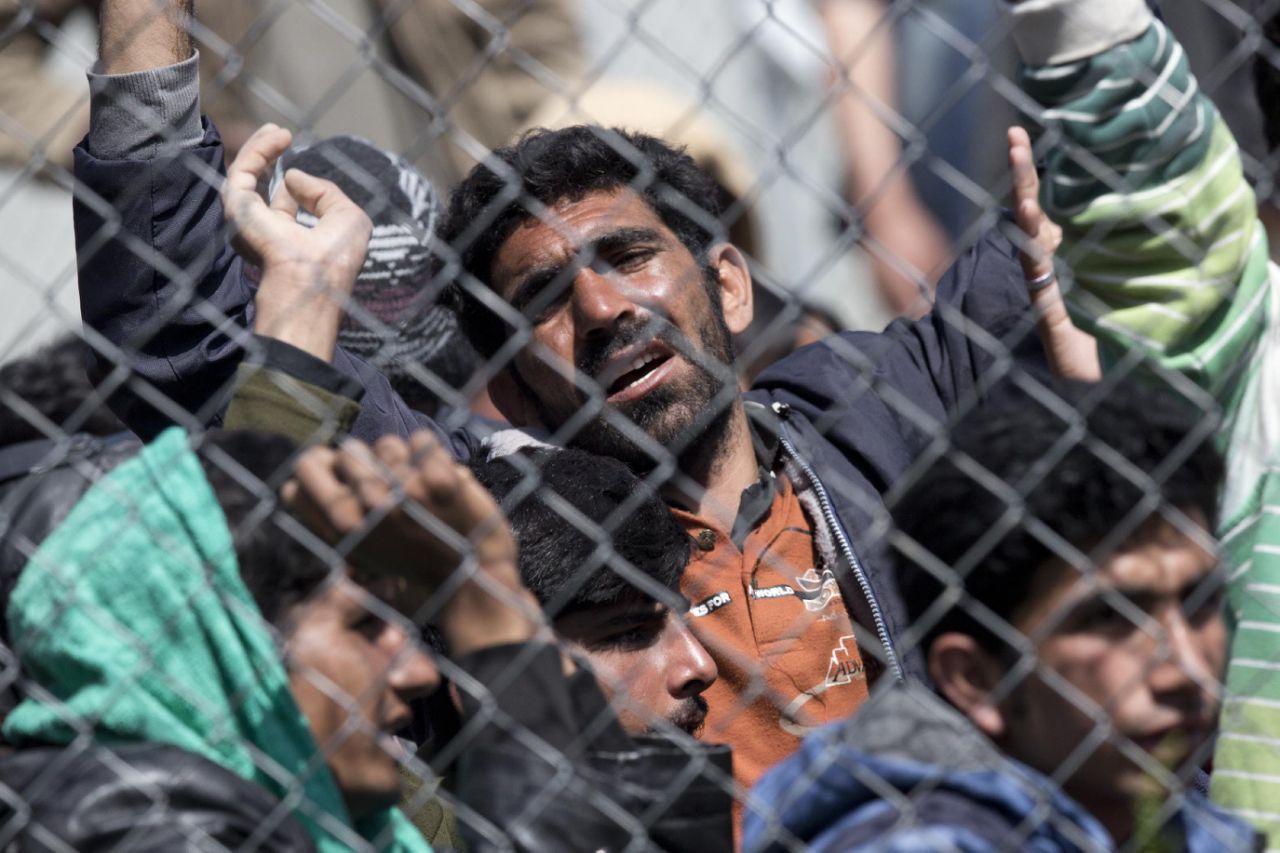Number of Pakistan Deportees Set to Rise

ISLAMABAD: In March 2016, the EU signed a far-reaching deal with Turkey to stem the flow of migrants into their union, which has spiked since September 2015. The hastily crafted deal, criticised by the UN for its disregard for human rights safeguards, requires Turkey to accept all migrants currently stranded in Greece, in return for visa-free travel for Turkish citizens to the EU, and a hefty sum of six billion euros.
Earlier, the EU had expanded its monetary and expert support to Greece to ease its burden of hosting migrants. As part of this new deal, Greece has begun expelling migrants to Turkey, which in turn has begun housing refugees on its soil, and is preparing to expel most non-Syrian refugees. As a consequence of this policy, Pakistani migrants in Greece are at the front of the expulsion queue.
On April 4, Greece shipped around 200 migrants to Turkey, including 111 Pakistanis.
Ninety-seven deportees (mostly Pakistanis) were also expelled via land route, according to Greek police. Given the Turkish Parliament's position on the status of Pakistani migrants, our government must be prepared to receive and repatriate a new wave of migrants returning to their (apparent) home country.
This issue has been brewing for years and has been on the policy radar of EU officials who have quietly intimated the Pakistani government of the possibility of impending deportations from their territory. Last December, our government returned over 30 out of 50 deportees who arrived in Pakistan due to lack of proper documentation, the interior ministry claiming that the EU is dumping non-Pakistani deportees on our soil. The EU's migration commissioner, Dimitris Avramopoulos, visited to resolve the issue. Yet the crisis has worsened.
The issue of Pakistani migrants in Greece, mostly without papers according to Greek authorities, has been in the spotlight since the Greek financial crisis. Greece has attracted Pakistan migrants since the 1970s; in one study by the Hellenic Foundation for European and Foreign Policy, Pakistani migrants number 40,000-50,000, although of ficial figures put the number at 15,478. The estimated 40,000-50,000 include migrants without residency documents.
Irrespective of their status, the Pakistani migrant community constitutes the largest Asian community in Greece; they have suffered the worst racist abuse and attacks in recent years, as documented in reports by various human rights groups.
The atmosphere of hostility has resulted in a huge spike in administrative expulsions by the Greek government, which peaked at 5,135 in 2012, according to Greek police.This is a huge jump from 2011, where the figure stood at 1,293 administrative expulsions.
Another category of voluntary returns includes another 6,445 migrants, according to combined figures of the International Organisation of Migration and the Greek police. Again, this represents a massive spike from 715 in 2011. Worryingly, before the deportation itself, most of these Pakistani migrants are detained in detention centres in degrading conditions. In some of these, the migrants have taken to hunger strikes to protest their conditions.
Yet this huge number of forced and voluntary repatriation has barely raised any policy ripples in Pakistan. With the new draconian EU-Turkey deal being hastily put into effect with little regard for human rights safeguards, the number of Pakistani deportees is set to rise exponentially especially given Pakistan's agreement with Turkey to take back all the deportees and repatriate them. Yet this is not the only stream of deportees coming Pakistan's way; the EU, too, is oiling up its deportation machinery.
Given growing hostility to newly arriving migrants in Europe, EU immigration policies are stiffening. One of the policy responses to the migrant issue involves voluntary or forced repatriation of failed applicants, to ease domestic opposition to growing migrant populations.
That means the rate of asylum refusal is set to grow across the EU, resulting in a greater drive towards deportation and repatriation. With an acceptance rate of 10-50pc for Pakistani applicants, the refused applicants will be put on a fast-track deportation schedule. This will swell the already growing concourse of Pakistan deportees, bringing with it its own set of rehabilitation challenges.
Yet it seems that the Pakistani government is not fully tuned into the scale of the crisis which is slowly brewing in foreign lands but heading for its borders. The response requires energetic planning to address a range of rehabilitation, policy and human rights challenges. Not much is forthcoming on this front. The sooner this multifaceted challenge is faced head-on, the better it is for the desperate and exhausted deportees.
(The writer is a development consultant and policy analyst.)
(INTER PRESS SERVICE)



